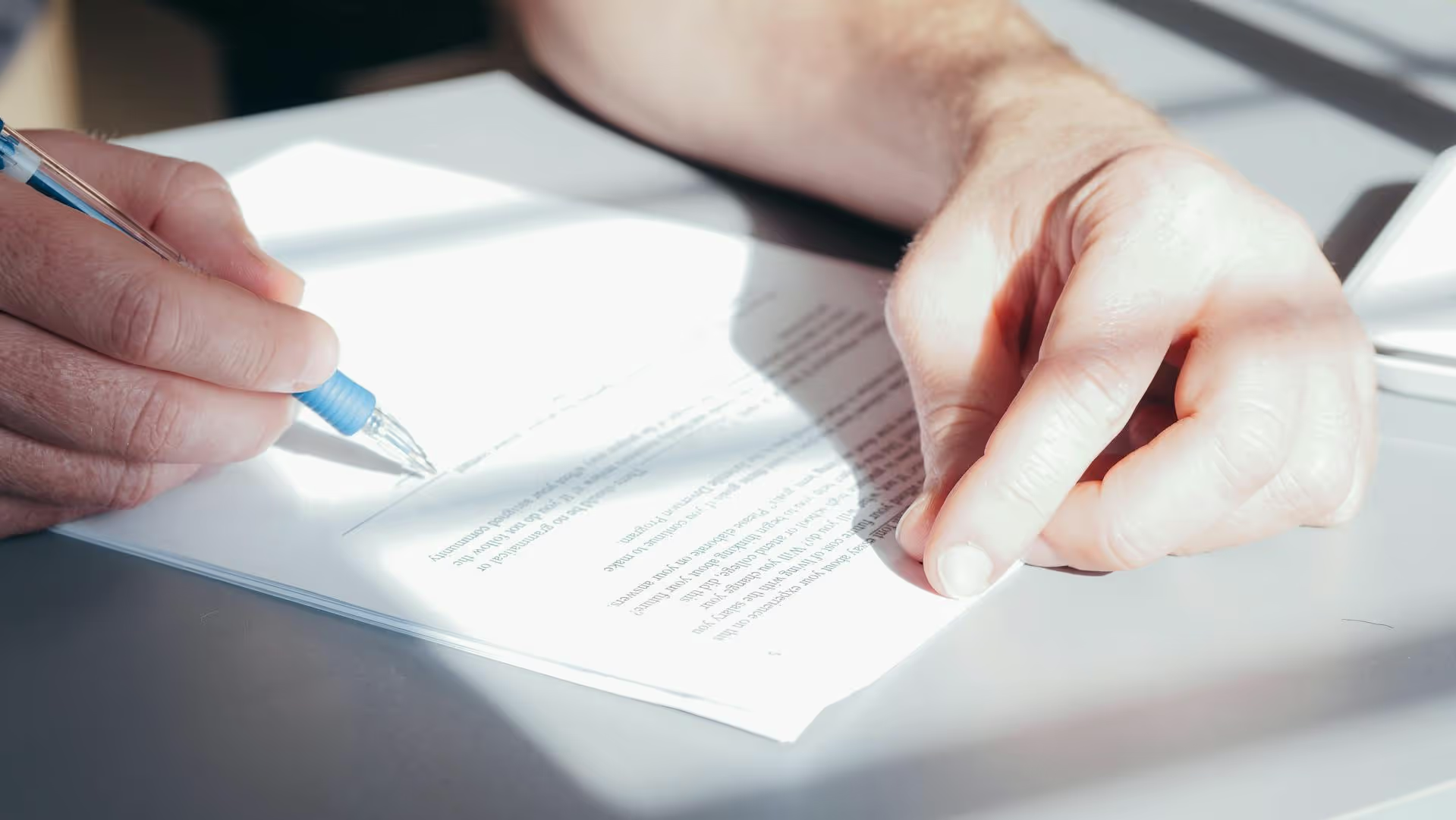What is an Invitation Letter for a German Visa
An invitation letter is a formal document written by someone in Germany to confirm that they are inviting you to visit the country and to outline the purpose of your stay.
An invitation letter also serves as supporting evidence for your visa application, showing that your trip is planned and legitimate, that you have a host in Germany expecting your arrival, and that you will return to your home country rather than extend your stay.
Purpose and Common Visa Types
An invitation letter is required for short-stay visas, visitor visas, business visas, and sometimes for cultural or research-related visits.
Its main purpose is to explain why you are coming, how long you will stay, and where you will stay during your visit. Whether you are traveling for personal reasons, business, or simply to see family, this letter provides immigration authorities with clear proof of your visit’s purpose, the connection between you and your host, and evidence that you will return home.
Who Can Issue It
An invitation letter can be issued by:
- Private individuals – family members or friends who live in Germany.
- Companies or organisations – for business trips, conferences, cultural exchanges, or academic purposes.
- Educational institutions – for study visits, language courses, or research stays.
When You Need an Invitation Letter
Although not every German visa application requires an invitation letter, having one can make your application stronger.
The main reasons an invitation letter is requested include:
- To confirm that your trip matches the visa category you’ve applied for.
- To show proof of a genuine relationship between you and the host.
- To demonstrate a legitimate reason for the visit, helping reduce concerns about visa overstaying.
Private Visits
If you are traveling to Germany to visit friends or family, your host can write an invitation letter outlining the details of your stay.
While this is not always mandatory, it can make the application process smoother by showing that you have a confirmed place to stay and a clear reason for visiting.
Business Travel
If you are traveling to Germany for business, such as attending trade fairs or other professional events, an invitation letter from your German business partner or company is usually expected.
This confirms the nature of your trip and the planned meetings, and it also reassures the German authorities that you do not intend to overstay your visa.
Family Visits
If you are visiting Germany for a family reunion or a short-term family visit, having an invitation letter from your relatives in Germany can be important.
This letter can prove your relationship with the host, confirm your accommodation arrangements, and show that the visit has a personal and genuine purpose with no intention to overstay.
Other Cases in Which an Invitation Letter Can Be Used
There are a few cases in which invitation letters can be used that would facilitate obtaining a visa, such as:
- Medical purposes – If you are travelling to Germany for medical treatment, a hospital or clinic can issue an invitation letter confirming your appointment, treatment plan, and duration of stay.
- Guest scientists or researchers – Universities and research institutions often provide invitation letters to visiting academics, confirming the research collaboration, funding (if applicable), and expected timeline.
- Trainings and workshops – Companies or organisations hosting training sessions can send an invitation letter outlining the training’s scope, schedule, and why your participation is needed.
- Exhibitions and trade fairs – Event organisers may issue invitation letters for exhibitors or participants, detailing the event’s dates, location, and your role in it.
How to Write an Invitation Letter for a German Visa
Having a well-written invitation letter can make your visa application stronger. However, the letter must meet certain requirements set by the German authorities. Here’s how to prepare the letter correctly.
Mandatory Information to Include
Your invitation letter should be detailed and cover all the key points immigration officers need to know. Make sure to include:
- Full details of the host, such as name, address in Germany, phone number, email, date of birth, passport or ID number
- Full details of the guest, such as name, address in home country, date of birth, passport number, and relationship to the host
- Purpose of the visit, where you clearly state why the guest is coming to Germany (holiday, family visit, business meeting, or medical treatment)
- Duration of the stay, where you include the exact arrival and departure dates, and specify whether the guest will stay with the host
- Financial arrangements, where you indicate if the host will cover any expenses, such as accommodation, food, or travel
- Signature and date
Tone and Formatting Tips
Keep the letter clear, factual, and polite. Avoid overly emotional language, and focus on providing precise information that supports the visa application.
It is recommended to write it in a formal business letter format and ensure it is free from spelling or grammar mistakes. The letter can be written in either English or German, as this is not a strict requirement.
Attaching Proof of Relationship
If you want to strengthen your application, you should attach supporting documents that prove your connection with the host.
This could include photos together (for family or friend visits), a birth or marriage certificate (for visits to relatives or a spouse), or business contracts, conference invitations, and prior correspondence (for professional or other visits).
Following Local Embassy or Consulate Requirements
Some German embassies or consulates may have slightly different guidelines for invitation letters. Before you send your letter, check the official website of the embassy where the guest will apply for their visa.
Following their specific format and including any additional documents they request can prevent delays or rejections.
Documents to Submit with the Invitation Letter

When sending an invitation letter for a German visa, you should include supporting documents for both the host and the guest.
This will help the embassy verify the relationship, the purpose of the visit, and the financial arrangements.
Host Documents
The host in Germany should attach:
- A copy of their passport or national ID (for German citizens) or residence permit (for non-EU residents).
- Proof of address – recent utility bill, rental contract, or registration certificate (Meldebescheinigung).
- If applicable, a Declaration of Commitment (Verpflichtungserklärung) to confirm financial responsibility.
Guest Documents
The guest applying for the visa should attach:
- A copy of their passport (data page).
- Completed visa application form and recent biometric photos.
- Travel itinerary or return flight booking (if already arranged).
- Proof of ties to the home country (employment contract, property ownership, or family documents) to show intent to return.
Financial Proof If Costs Are Covered
If the host will pay for some or all of the guest’s expenses, they must include:
- Recent bank statements or payslips.
- Proof of income, such as an employment contract or tax assessment notice.
- If available, an official Verpflichtungserklärung from the local Ausländerbehörde, which is often preferred by German embassies for proving financial support.
Fintiba Blocked Account for Fast Financial Proof
If the host doesn't pay for your expenses, you can sign up for a Fintiba Blocked Account to prove that you can support yourself financially. With Fintiba, the process is quick, easy, and fully online!
You will receive a blocking confirmation once the account is set up and the funds have been deposited. This confirmation can then be attached to the letter
Declaration of Commitment vs. Invitation Letter
When applying for a German visa, the declaration of commitment and the invitation letter are sometimes confused, but they serve different purposes in the application process.
Understanding how they differ will help you prepare the right documents and avoid unnecessary delays.
Main Differences
While both documents support a German visa application, they serve different purposes:
- Declaration of Commitment (Verpflichtungserklärung) – Focuses on financial responsibility. The sponsor guarantees to cover the applicant’s living costs, including accommodation, food, healthcare, and potentially return travel. It is legally binding and regulated under German law.
- Invitation Letter – Focuses on the purpose and details of the visit. It outlines why the applicant is travelling, the relationship between host and guest, and the planned duration and activities during the stay.
Sample Invitation Letter for a German Visa
If you want to write an invitation letter, here is a model which you can adapt based on your situation.
FAQs
Find answers to common questions about visa in Germany.
Is an invitation letter mandatory for all German visa types?
No, an invitation letter is not required for every visa type. It is mostly used for private visits, business trips, or family visits. Some applications can be approved without one if you provide sufficient alternative documentation.
How long is an invitation letter valid?
There’s no official expiry date, but it’s best to ensure the letter is issued close to your application date so the information remains accurate and current.
Does the invitation letter need to be notarized?
Not necessarily. A simple signed letter is sufficient in most cases, but if the embassy requests additional authentication, you may need to have it notarized. This is more common for certain legal or official purposes.
Can multiple guests be invited in one letter?
Yes, a single invitation letter can include multiple guests, as long as the details for each person are clearly listed. The host should include each guest’s full name, passport number, and relationship to the host.
Can I send the invitation letter by email or must it be original?
In many cases, embassies will require the original signed document sent by post. Always check the embassy’s website for specific rules.
Get Your Visa-Ready Package
Start your journey to Germany with our all-in-one visa solution tailored for your needs.
Related Visa Guides
Discover additional articles covering different visa types, requirements, and application tips for Germany





